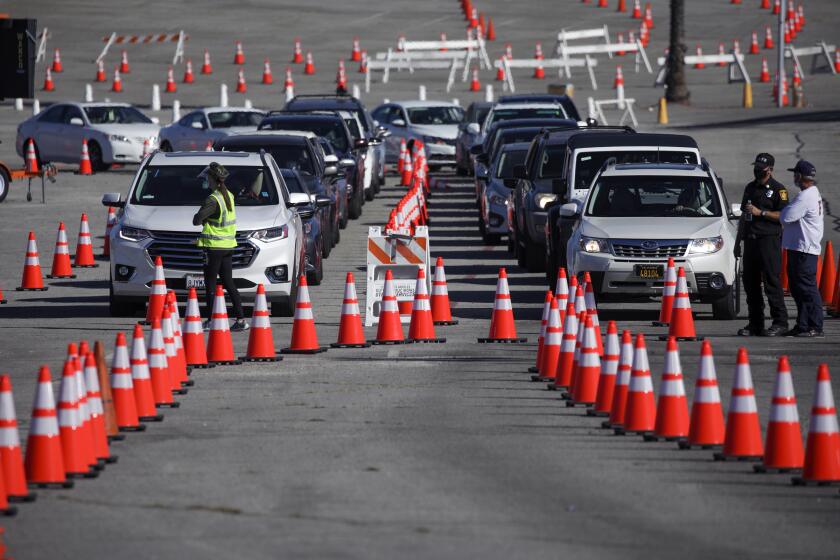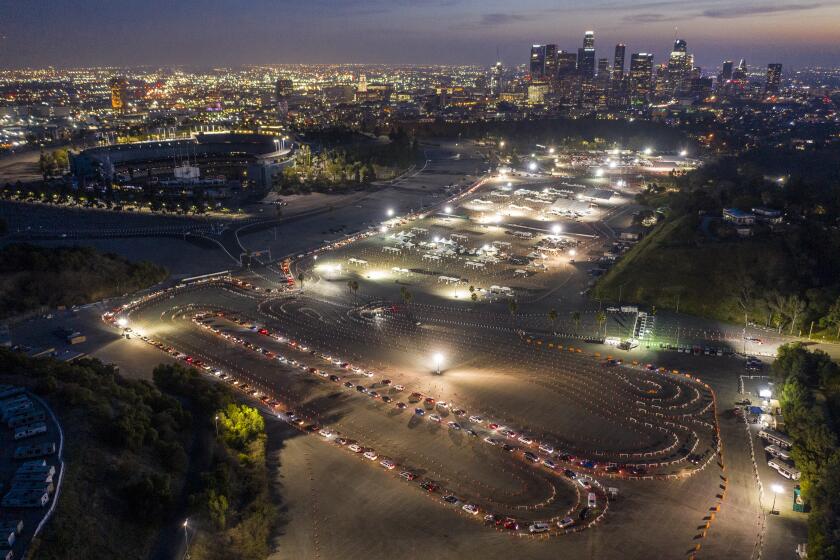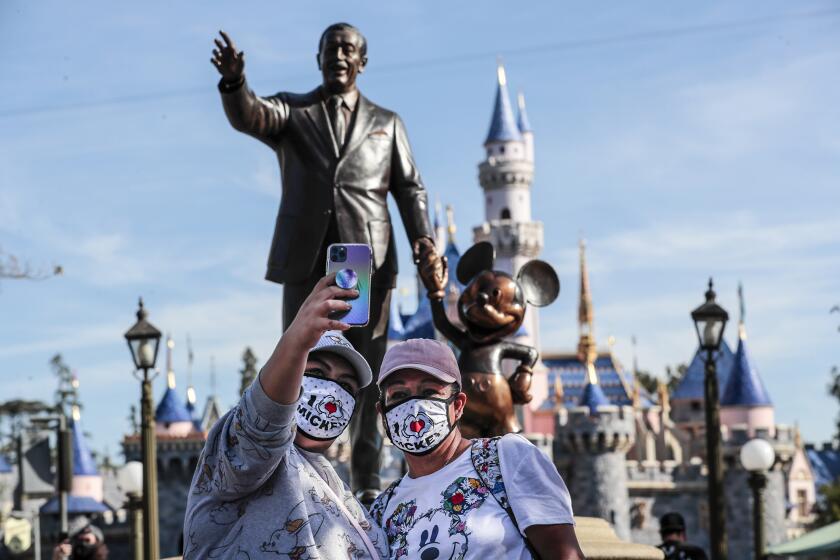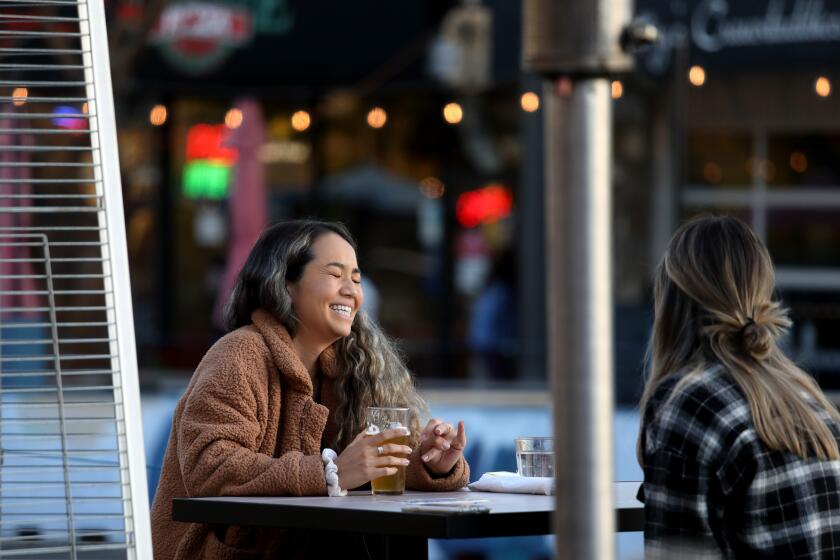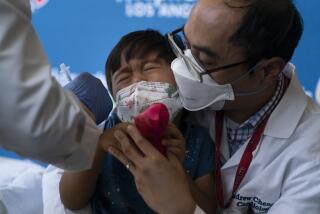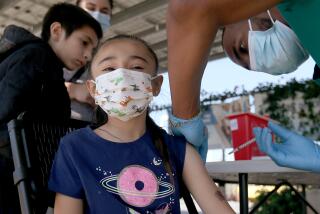California has given 30 million COVID-19 vaccinations, but demand may be dropping
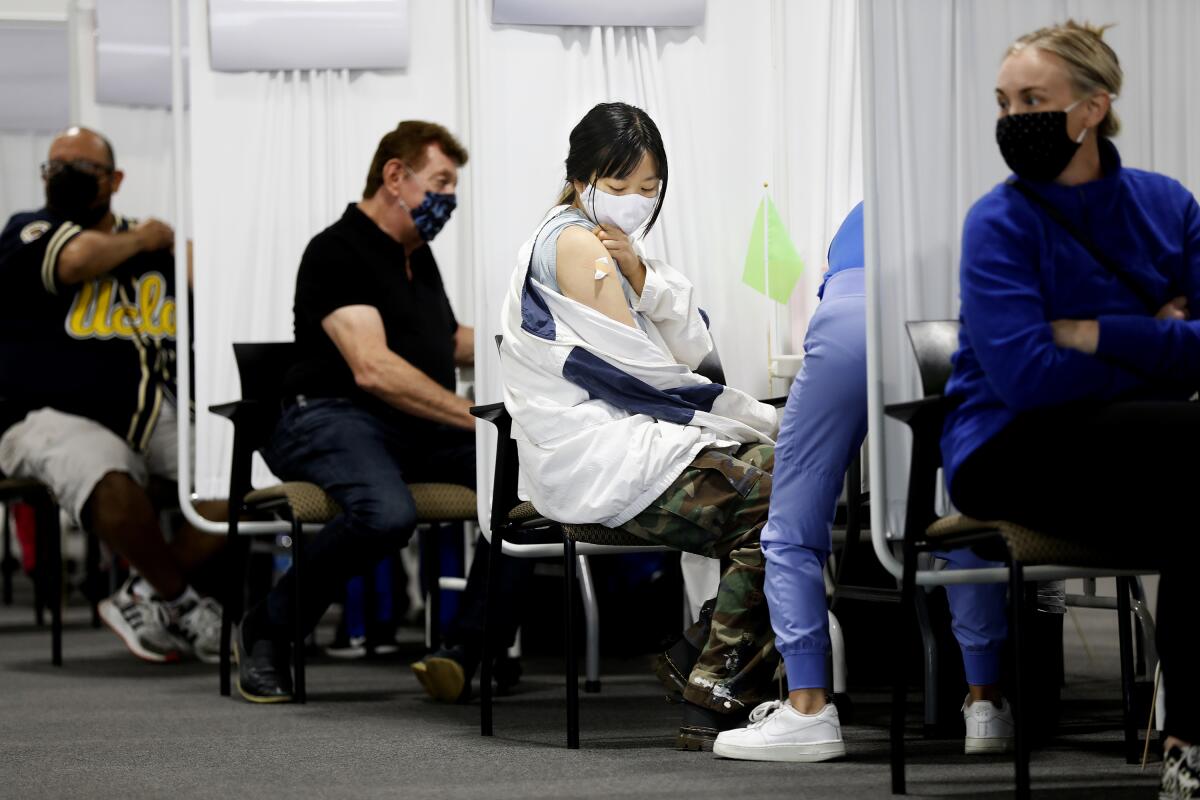
- Share via
Providers throughout California have now administered 30 million total doses of COVID-19 vaccine — a milestone that, though promising, comes amid rising concerns that interest in the shots may be starting to wane.
The abrupt about-face from a situation in which demand for doses far outstripped supply to one in which appointments are readily available is alarming. Health officials note that, for all the progress California has made against COVID-19, the battle is not yet over.
“The best tool we have for allowing us to stay on this recovery path is the vaccine,” Los Angeles County Public Health Director Barbara Ferrer said this week.
Although millions of people in L.A. County remain unvaccinated , demand for the COVID-19 vaccine has suddenly fallen, and experts are alarmed.
Even with the state having passed another momentous mile marker, many residents have still yet to roll up their sleeves, according to data from the U.S. Centers for Disease Control and Prevention.
And despite the sheer number of doses that have been administered, California — with its roughly 40 million residents — remains significantly short of the level of vaccine coverage many experts believe is necessary to achieve herd immunity and finally bring the pandemic to an end.
To date, 48.5% of all residents, and 61.5% of adults, have received at least one vaccine dose, CDC figures show.
But only 30.2% of Californians have fully completed their inoculation course, meaning they’ve received both required doses of Pfizer-BioNTech or Moderna or the single-shot Johnson & Johnson vaccine.
Though estimates vary, the share of the population that would need to be vaccinated to starve the coronavirus of new people to infect is often pegged at 80% or higher.
And recent data indicate that California’s vaccination pace is starting to tail off.
For the week that ended Monday, providers statewide administered an average of 318,098 doses per day — down about 20% from the statewide peak of 395,328 a day during the week that ended April 11, according to data compiled by The Times.
In L.A. County, “almost all of the providers have said they had appointments that did not get filled this week. Some had a few, some had a lot,” Ferrer said Thursday.
“We’re down at least 50% at all of our county sites in terms of filling appointments,” she said during a briefing. “We take a lot of walk-ins, so that makes up for some of it, but we’re still going to be down for this week.”
This significant drop, she continued, is “very worrisome.”
“This would not be the time to sort of lose momentum on vaccinations,” she said.
The pending closure of the mass vaccination site at Dodger Stadium — one of the largest in the country — is another worrisome sign of slowing demand for the COVID-19 vaccine.
California’s most populous county isn’t an outlier when it comes to a downward trend in demand for doses. Dr. Marty Fenstersheib, Santa Clara County’s COVID-19 testing and vaccine officer, is also “concerned about the drop in demand for vaccine that we have seen over the past week or so.”
“We’ve come so far, but we aren’t in the clear yet,” Fenstersheib said in a statement Friday. “Today I am urging everyone to continue getting vaccinated. This will save lives, protect our community from dangerous variants and help us get out of this pandemic. We won’t reach the finish line until everyone who is eligible gets a shot.”
Officials are particularly worried that younger and Latino residents are less interested in getting the vaccine.
In Santa Clara County, the home of Silicon Valley, 1 in 3 people ages 16 or 17 have received at least one vaccine dose. But only 1 in 10 Latinos in that same age group have done so, Fenstersheib said.
“Young people have this misconception that COVID is no big deal,” he said. “It is a big deal. And we’ve seen a lot of young people, now hospitalized … with long-term infections that go on for months and months and months.”
Only the Pfizer-BioNTech vaccine is available to people ages 16 and 17. The Moderna and Johnson & Johnson vaccines are only for adults.
There’s also a misconception that those who have previously had COVID-19 do not need to get inoculated. Health officials stress that the vaccines confer more immunity than a natural case and reduce the risk of getting reinfected.
“We’re not done until the hardest-hit communities are vaccinated at the same rate as everyone else,” said Dr. Rocio Luna, Santa Clara’s deputy county executive and an East San Jose native. “Latinos — we’ve got some work to do. So I’m calling on you to get your vaccine.”
In L.A. County, more than 50% of white and Asian American residents ages 16 and older have received at least one dose of vaccine, compared with only about 30% of similarly aged Latino and Black residents.
Emotions run high as Disneyland reopens after an unprecedented yearlong pandemic closure. A lot has changed.
At a media briefing Friday at William C. Overfelt High School in East San Jose, which is hosting a vaccine clinic through the weekend, senior Andrea Hernandez said she got vaccinated “to keep everybody safe” and urged fellow teenagers to do the same.
Hernandez, who is also captain of the school’s varsity soccer club, said there’s a lot of misinformation on social media “going around about how the vaccine is not important or how we don’t need it because we’re not a high-risk community.”
“I believe that that false narrative being spread around is causing the youth to not get our vaccines,” she said. “I think once more people my age are coming out about getting the vaccine and how it is important, I believe that more people will be able get it.”
Although Latinos account for about 48% of California’s 17-and-younger population, they make up 65% of coronavirus cases among children statewide, according to a Times analysis.
Santa Clara County Supervisor Cindy Chavez urged parents to bring their teenagers of eligible age to get vaccinated. Chavez, the mother of a 19-year-old, said it’s risky to leave your child unvaccinated.
“Kids are starting to go to college, and we all want to get back to school. The only way we’re going to be able to open up these beautiful halls to young people who want to learn and get on with their lives is if we can get everybody vaccinated,” she said.
If you’re vaccinated and headed outdoors, you can take your mask off, L.A. County says. But only if it isn’t crowded, and you might consider the kids.
Many areas of the country are experiencing a similar downturn in demand for doses.
This is probably the result of a number of factors, including temporary interruptions in supply due to the recently lifted safety review pause for the Johnson & Johnson vaccine and the possibility that many people who wanted to get vaccinated have already done so, leaving only those who may be more reluctant or resistant to getting the shots.
“Given that we’ve succeeded in getting vaccinations to the lion’s share of those most at risk and those most eager to get vaccinated, we are now increasingly focused on other groups that will take time to reach,” Jeff Zients, coordinator of President Biden’s COVID-19 task force, said during a briefing Friday. “And we expect the number of shots administered each day to moderate and fluctuate.”
More than 240 million total vaccine doses have been administered nationwide, and 43.6% of Americans have received at least one shot, CDC data show. About 30.5% are considered fully vaccinated.
More to Read
Sign up for Essential California
The most important California stories and recommendations in your inbox every morning.
You may occasionally receive promotional content from the Los Angeles Times.
